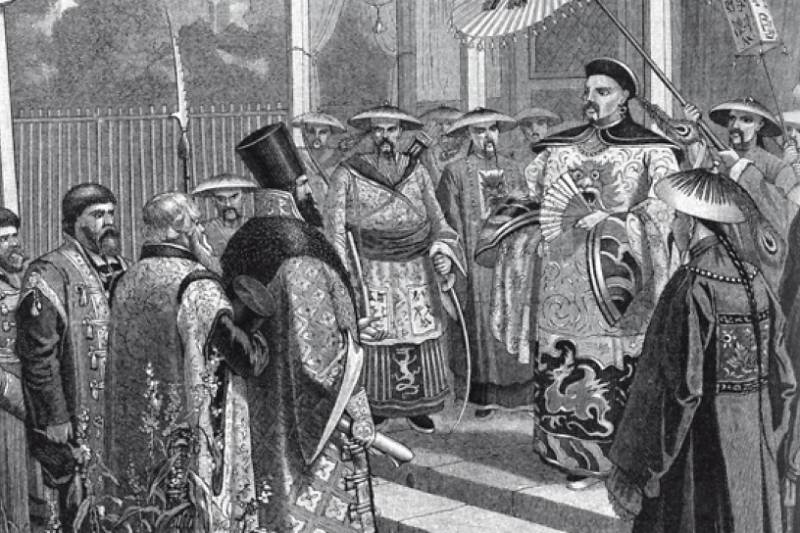Why did the Moscow kingdom sign the unfavorable Treaty of Nerchinsk with the Chinese Qing Empire

In the middle of the XVII century there was an active development of Siberia by Russian merchants and industrialists. First of all, they were attracted by furs, which at that time were considered a very valuable commodity.
Taking into account the fact that the discoverers needed food bases to move forward, settlements gradually arose in the explored territories, the inhabitants of which were engaged in hunting and agriculture.
So the development of Siberia gradually went on, until the Russian pioneers entered the territory of the Amur region, inhabited by representatives of the Mongolian and Manchu peoples. The natives, who did not have the opportunity to resist the Russian troops, were subject to tribute. But, everything would be fine if they had not previously been tributaries of the Chinese Qing Empire.
So, with the attack of the Qing punitive detachment on the Achansky town in 1651, the confrontation between the Moscow kingdom and the Chinese Empire began, which lasted until 1689, ending with the signing of the Nerchinsk Treaty.
On the one hand, the aforementioned document laid the foundation for the peaceful coexistence of Russia and China, on the other hand, according to many historians, it became unprofitable for the Muscovite kingdom, as it contained a number of concessions to the Qing Empire.
However, the signing by Moscow of the unfavorable Nerchinsk Treaty was due to several reasons at once.
Firstly, the Qing empire at that time was on the rise and had a powerful army, part of which stood ready near Nerchinsk. Thus, it was China that negotiated from a position of strength.
Secondly, the Russian delegation did not know Chinese in the same way that the Chinese did not know Russian. The negotiations had to use the mediation of the Jesuits, who translated both languages into Latin.
The latter, by hook or by crook, persuaded Russian diplomats to make concessions to China in order to quickly end the confrontation with the Qing Empire and, having united with European countries, focus on the war with Turkey.
Finally, thirdly, at that time the development and development of the Far Eastern lands did not look promising for the Russian government. Therefore, concessions for the sake of peace were met very positively. Tsar Peter I even rewarded the ambassadors for the conclusion of the Nerchinsk Treaty.
Information